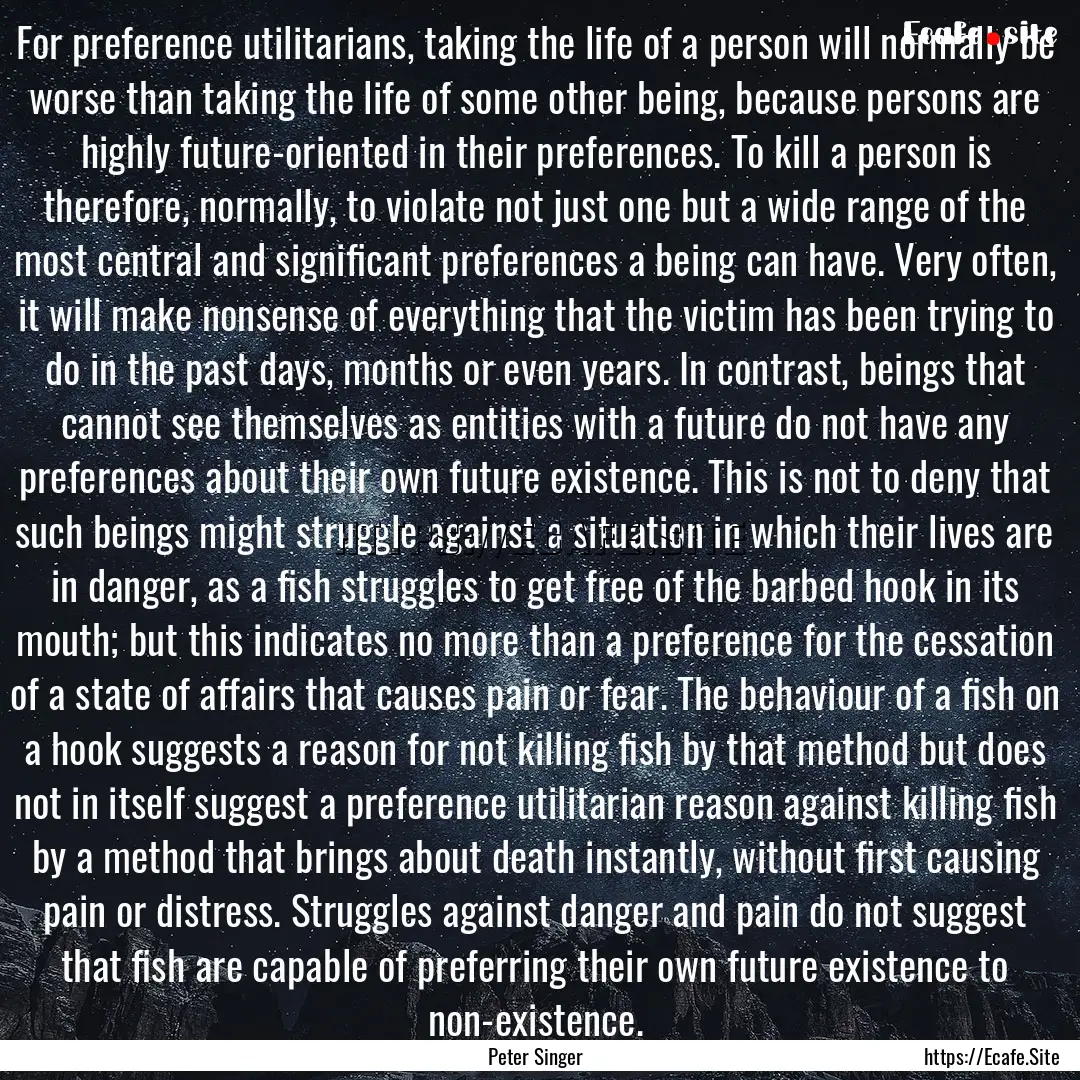
Report, if you have a problem with this page“ For preference utilitarians, taking the life of a person will normally be worse than taking the life of some other being, because persons are highly future-oriented in their preferences. To kill a person is therefore, normally, to violate not just one but a wide range of the most central and significant preferences a being can have. Very often, it will make nonsense of everything that the victim has been trying to do in the past days, months or even years. In contrast, beings that cannot see themselves as entities with a future do not have any preferences about their own future existence. This is not to deny that such beings might struggle against a situation in which their lives are in danger, as a fish struggles to get free of the barbed hook in its mouth; but this indicates no more than a preference for the cessation of a state of affairs that causes pain or fear. The behaviour of a fish on a hook suggests a reason for not killing fish by that method but does not in itself suggest a preference utilitarian reason against killing fish by a method that brings about death instantly, without first causing pain or distress. Struggles against danger and pain do not suggest that fish are capable of preferring their own future existence to non-existence. ”

Peter Singer
From : Practical Ethics



